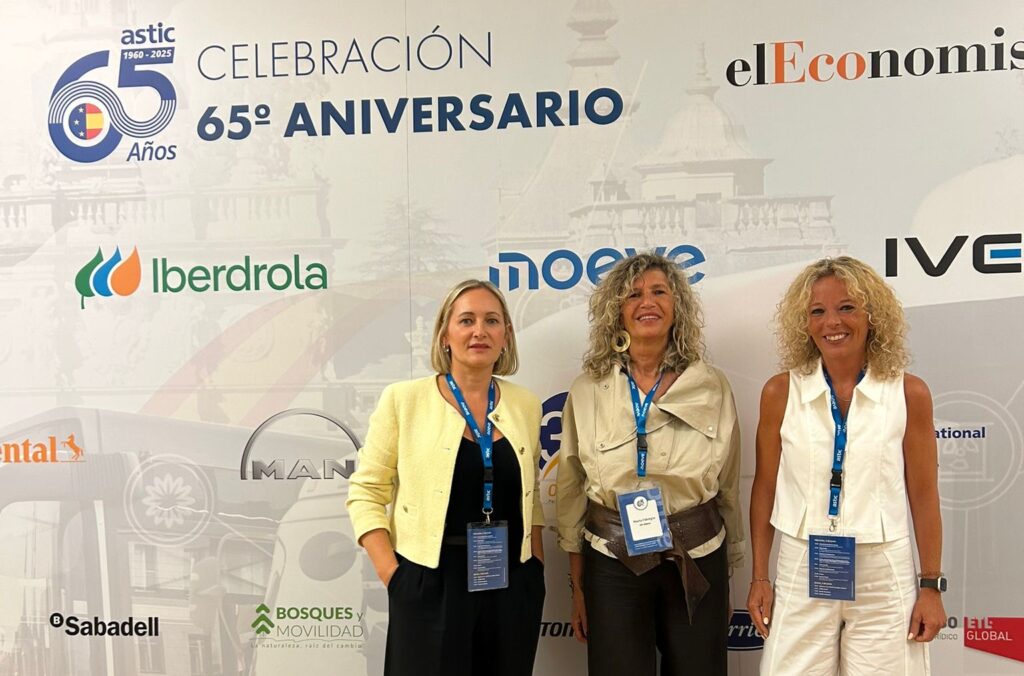Transport’s main concerns under discussion at ASTIC’s general assembly
This June we had the pleasure of attending and supporting the XLVIII General Assembly of the Association of International Road Transport (ASTIC), held at La Granja in Segovia. The meeting addressed the main threats to the transport and logistics sector, which mainly focused on the implementation of a new European regulatory framework and the energy transition; the possible reduction of working hours and, finally, the alarming shortage of professional drivers and the lack of generational renewal.
In addition, this year’s assembly also celebrated the organisation’s 65th anniversary, a milestone that underlines its key role as a driver of change and progress in the sector.
A look at the present and future of the sector
ASTIC’ s 48th General Assembly brought together some of the most established international road transport and logistics companies in Spain. ASTIC currently comprises more than 240 companies with an average of 33 years of activity. This is the case of OnTurtle, with three decades of experience. In our case, we were represented by our management team, with our CEO, Marta Fàbregas Gudayol, Dorota Nowak, Commercial Director, and Nuria Jurnet Vila, Sales Manager, who actively participated in the various round tables and scheduled activities.

The issues of greatest concern to freight transport
During ASTIC’s general assembly, attendees had the opportunity to discuss and deepen some of the issues that most concern the international road transport sector. These were some of the key ideas we took away from the meeting:
- Energy transition: it is important to move towards a more sustainable transport model, combining innovative solutions that fit with current transport company operations. Indeed, in this respect, ASTIC supports Europe’s reconsideration of promoting gas as the most plausible alternative energy source today.
- Lack of generational renewal: Spain needs 30,000 truck drivers. This figure could rise to 116,000 by 2028. The shortage of drivers demonstrates the urgency there is in making the driving profession a more dignified one so that it attracts young talent to the sector.
- Logistics and mobility challenges: safe and adequate infrastructure to facilitate the daily work of transporters is a global necessity.
- Digitalisation of transport: digital transformation remains a priority, not only to optimise processes, but also to ensure traceability and transparency.
- Unfair competition and European regulation: also stressed during the assembly was the importance of fair regulation that levels the playing field between European operators.
A shared commitment
Being part of meetings such as ASTIC’s general assembly reaffirms our commitment to more efficient, safe and environmentally friendly transport. It also allows us to continue strengthening strategic alliances and generate synergies that benefit the entire logistics ecosystem.
We are grateful to ASTIC for bringing us together in this forum for reflection, once again this year, and for its work in defence of international transport. Congratulations on 65 years of history!


